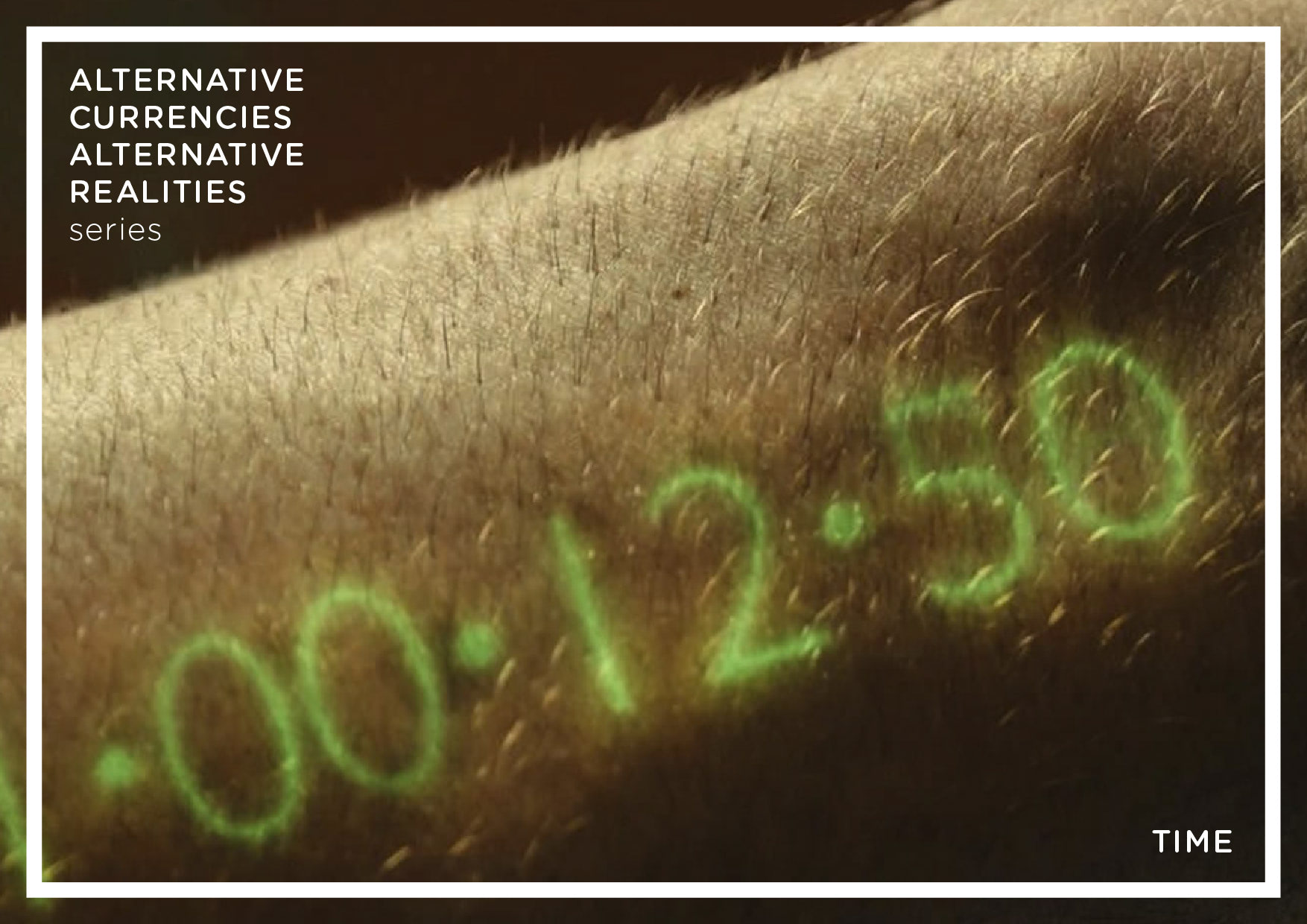In 2169 people will have perfect health and appearance. Every member of the human race will have a digital clock installed on his or her forearm by a bioengineer (once called biohackers). When people turn 25 they stop ageing and their clock begins counting down from one year. When the clock reaches zero, that person "times out" and dies instantly. The poor work in factories to gain more time credits, envying the rich who can live for centuries in closed off communities, slowly buying whatever their hearts desire. Time has become the universal currency.
This is the dystopian world of the 2011 film In Time. This idea is not a new one though, as time has been used as an exchangeable currency since as far back as the Industrial Revolution. In 1827, the American anarchist Josiah Warren opened a Time Store in Cincinnati where products were offered in exchange for the amount of time that it took to produce them. In 1832 the Welsh social reformer Robert Owen issued Labor Notes which were comparable to bank notes representing 1, 2, 5, 10, 20, 40, and 80 hours of labor. Jumping to the 20th century, in 1983 a Canadian named Michael Linton created the concept of a Local Exchange Trading System (LETS) whereby members of a LETS advertise their skills and services and exchange these with other members in return for time credits. Linton designed a computer program that allowed community members to easily log and share their offers and wants, as well as record transactions between them.
The principle behind a time based currency is usually very simple: one hour of work equals a unit of time. This time can then be spent within the timebank system. This form of community currency recognizes the value of activities neglected by the mainstream economy. It also encourages members of the community to take part in the local economy and can gives isolated or economically excluded individuals the opportunity to ‘buy’ services they would otherwise be unable to afford. It can also give people a feeling that their own skills are valued and needed by others.
These grassroots currencies, launched by individuals and small groups of concerned citizens, can now be seen around the world. The ‘trueque’ currency in Argentina helped support up to ten million people following their national economic downturn in 2001 and a weakening of their fiat currency. Time banks and time credits are also used across Europe like the TEM in Greece, the Timebank.cc across The Netherlands and Spice Credits in Wales. The impact of Spice Credits has been studied and the results are one of overall positivity. More than half of citizens using the credit are volunteering in their communities for the first time and the vast majority say they will continue to do so. This increased level of community participation is having a positive effect on individuals too: 66% of users says that Spice Time Credits have helped improve their quality of life; 71% has made new friends; 49% feels less isolated; 45% feels healthier since they started using the currency.
It’s actually pretty amazing to see that a well designed currency can not only bring communities closer together, but can also make individual citizens healthier and happier. For all these successes, time based currencies are not without their flaws. Time credits are usually service based so people cannot buy products with them. Supply and demand of certain services may not always be found within the community or certain services may dominate the system. The governance (those running the timebank) is often not financially sustainable or relies on volunteers. Finally and most importantly, time banks take away the markets ability to price different skills at different levels. Does one person’s time and skills directly equate to another? Is an hour with an IT specialist debugging a computer the same as an hour of a decorator painting a wall?
Perhaps on a philosophical level it is. As it stands, we all experience time in the same way as a finite resource. Though some speculate that we may achieve immorality within our lifetimes, most believe that our clocks will one day reach zero and that everyone will eventually “time out”. Time is a great equalizer in that sense. For time, the great axiom goes, is more valuable than money. You can get more money, but you cannot get more time.

Share your thoughts and join the technology debate!
Be the first to comment